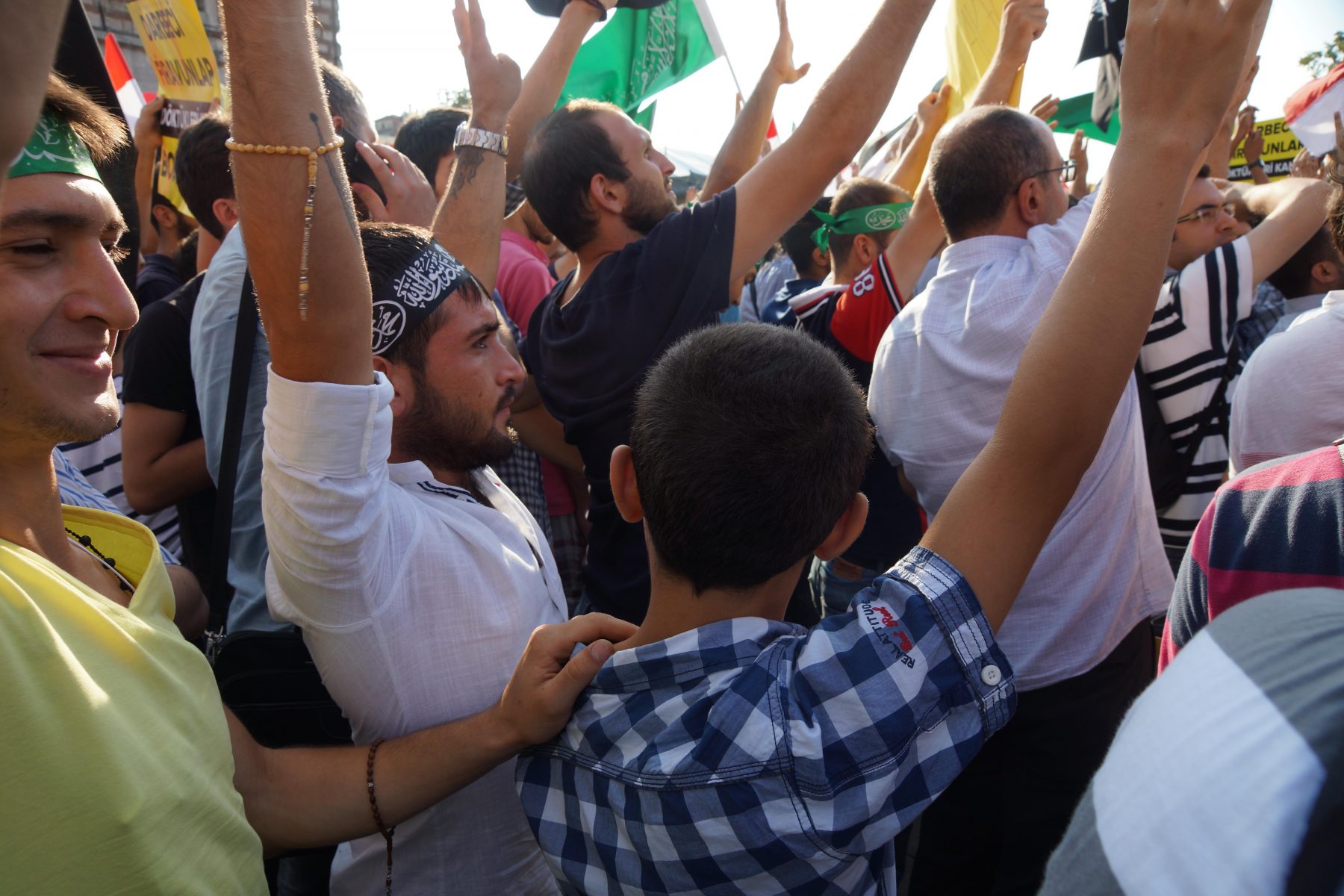On September 23, 2013, the previously unheard of Cairo Court of Urgent Affairs passed a ruling that authorized the regime to seize the funds of the Muslim Brotherhood and effectively criminalized the group’s activities. Although it is still unclear whether the current military-backed regime can muster enough authority to enforce this ruling on its turbulent populace, the action itself throws the legitimacy of post-Morsi Egypt into question. This is only the latest development in a state-led campaign against the Brotherhood that has seen the death of hundreds of the Brotherhood’s supporters and the imprisonment of thousands more.
As the media anxiously updates the death toll of each demonstration, the forest is lost in view of the trees. The continuous stream of numbers and accumulation of demonstration dates disguises the methodical use of state power to control discourse and guide perception. The current regime has created a theater in which it can play the part of a strong, centralized state battling the unstable elements of religious fervor and mobs when in reality these unstable fringes were not so long ago the democratically-elected government of Egypt.
To complete its drama, the regime has encouraged a new wave of Egyptian nationalism through the exhibition of a strong leadership and an even stronger military to enforce it. Playing upon the tried and true pattern of Nasserian nationalism, the current regime has been able to aggregate popular support by using the strength of the military as a natural locus for Egyptians to rally around. However, in order to assure this nationalism becomes once again the predominant political ideology in Egypt, the regime has had to undermine deep-seated Islamist sentiment. It has accomplished this task primarily through a series of carefully orchestrated acts, vilifying the Muslim Brotherhood both by policing their actions and by casting them as an external enemy. In doing so, the regime has solidified its position, feeding off the failure of Morsi’s election and the ensuing chaos of the coup in order to garner support for a nation no longer defined by its spectrum of political ideologies, but by its overarching concern for the security of the state as a whole.
Although this operation is centered on vilifying the Brotherhood in the eyes of the Egyptian public, the authority of the new military-backed regime is at stake as well: criminalization of a rival political group demonstrates a clear play for legitimacy. The new regime is eager to solidify its presence in Egyptian political life, and thus seeks to ground its military structure and authoritarian decision-making process as both vital and advantageous given the chaos still present in Cairo’s streets. By criminalizing the activities of the Brotherhood, the regime has succeeded in providing a legal veneer to the police action taken against the party’s supporters. With formalized structures for brutality, the state may continue to imprison protesters by the thousands and use its military arm to quell dissent – all within the guise of maintaining peace and civil order for its people.
This, however, is an idealized form of state suppression. What is much more likely to occur is the further marginalization of a legitimate political ideology, the continued estrangement of the Egyptian people from their multi-party system, and, in all likelihood, the provocation of the Brotherhood to a more violent form of dissent. The term “insurgency” has already been used in gauging the extent of violence present today, and it is clear that such escalations are quickly becoming the new reality in Egypt. It should also be clear that this militarized nationalism can never be the necessary panacea to unite a nation as politically diverse as Egypt, and certainly not within a nation now so predisposed to civil dissent.
Popular consensus may very well condemn the Muslim Brotherhood for the past year (and certainly the abuse of power by the Morsi regime merits such condemnation). However, when that condemnation then takes the form of criminalization as a political contrivance of the regime to garner popular support, it knocks at the very basis of good governance. By criminalizing the Muslim Brotherhood, the regime is not protecting its population, but forcibly estranging it from its right to political association, which is fundamental to the Egyptian multiparty system itself.
Although it may be idealistic to assume a coup may maintain good governance, the current regime’s further entrenchment into military solutions for political problems bears as much threat to the preservation of democracy as did Morsi’s own heavy-handed treatment of Egyptian civil rights. Regardless of whether the regime begins to enforce the criminalization of the Brotherhood, it has already succeeded in turning the group into an enemy of the state, and in doing so, turned an already enfeebled democracy on its head.




